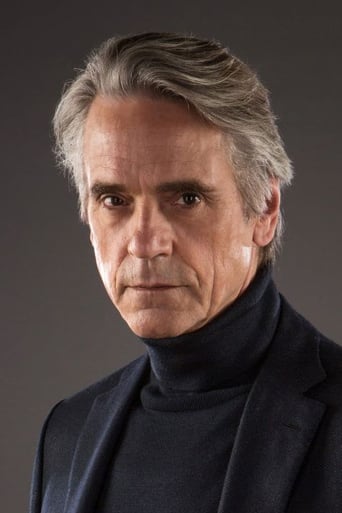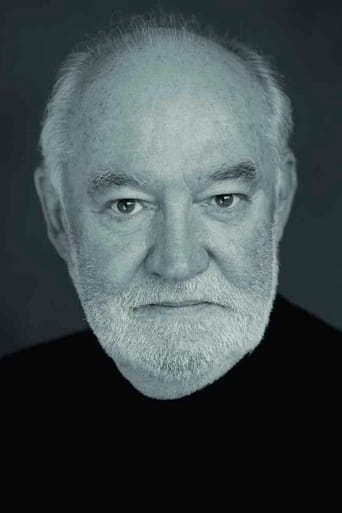Solemplex
To me, this movie is perfection.
Freaktana
A Major Disappointment
Doomtomylo
a film so unique, intoxicating and bizarre that it not only demands another viewing, but is also forgivable as a satirical comedy where the jokes eventually take the back seat.
FilmCriticLalitRao
Moonlighting is an outstanding Polish film which deserves to be listed among top 100 world cinema films.It is a film which shows us that there are some cruel,inhuman,unjust political systems and political establishments who constantly deprive common people of earning their respective livelihoods.Moonlighting demonstrates that human life is full of misery as it can make somebody do things which one would normally not do in daily life.This is the case of a Polish foreman Novak who is in London with three construction workers known to him. For them,their work site appears more of a prison as they cannot go out.Skolimowski is as critical of the plight of clandestine workers as that of Polish government's decision to declare Martial Law.It is sad to learn that according to moonlighting some workers had to work for 18 hours a day.Anxiety,apprehension and confusion are immediately palpable to these people who have landed in London for earning extra money.For example :an airport scene shows Polish workers to be entirely dependent on Novak as he is the only person who speaks English.Touching too are the scenes in which Novak pilfers from a neighborhood supermarket.A word about Sir Jeremy Irons.He is a joy to watch as nobody expected him to play the role of Nowak with amazing inventiveness.
Syl
The story is told by Novak's point of view. Jeremy Irons learns his Polish to play Novak in this story. He is a Polish electrician traveling with three other works to London, England before martial law was enacted in Poland in 1981. Well, anyway as a Polish American, they are believable but are seen as buffoonish and dumb even by Novak himself. If Novak had told his workers the truth, I think they would have gotten along or understood their dire consequences. Jeremy Irons gives a pretty believable performance as the working Polishman. This film resonates a quarter of a century later because many Polish men and women are legally in London and England seeking to better themselves. I understand the Polish mentality because I grew up with Polish immigrants and the notion of Poles coming just to work and earn more money in America. I could see this story actually happening but I don't think they give the other workers credit because we barely see them act as anything other than fools. It's kind of heartbreaking because Novak goes to so much trouble to spare them from the lack of money and the truth of the situation back home in Poland where he is the only one who knows only what's going on but doesn't tell his employees under his command that Poland is in political turmoil. You can't help but wonder what happens when they do go home. Can you imagine walking 6 hours to Heathrow Airport? You felt pity and foolishness for Novak's actions at the supermarket and the stores. Of course, Poles are good at surviving and I know this from my personal experience. They have survived 2 World Wars and communism. Poles' biggest problem is living and to stop worrying about money. The stereotypes of Poles like Novak trying to stretch each pence is to survive nothing more. They didn't complain about the 30 miles to Heathrow. You felt that they were out of place there. Novak wondered about his wife, Anna, and the possibility that she was probably being seduced by his employer who sent him to London in the first place to fix up the apartment. With telephone services cut down and money tight, Novak does everything he can to protect himself and his men from the dangers of the police, immigration, and even Polish government under martial law. We don't know what happens to them when they go home or if they ever do or if they are stranded in London. There are still many unanswered questions about their predicament.
Oblomov_81
Jerzy Skolimowski's "Moonlighting" is an outstanding achievement in many respects. Not only does it contain one of the most fulfilling performances that has ever been put to the screen, but it also serves as a political allegory, a smartly-told drama, and a unique exercise in creating suspense.On the surface, the story is rather simple: sometime in the early 80's, during the political turmoil that was occurring in Poland, a group of Polish workers emigrate to London to renovate an apartment for their boss. They have no working permits, so they have to do their job with as much secrecy as possible. When Novak (Jeremy Irons), their English-speaking foreman, discovers that military law has been declared in their homeland, he tries to keep it a secret until they are allowed back into the country.This may not seem like much of a story compared to most modern thrillers. There are no police out to get Novak and his men, nor are there any political opponents out to assassinate them. They are simply there to do their job, and Novak has to make sure they do it effectively and on time. Small but crucial subplots develop out of this: in order to feed himself and his men, Novak has to fake receipts for food (due to the limited amount of money they brought with them), and there are several scenes where he tries to get past the clerks at a grocery store with a Christmas turkey. He also has to buy them clothes and fulfill some of their material demands. On top of that, he also begins to develop fears and worries about his wife back home, including the suspicion that his boss may be having an affair with her. As the story progresses, Novak's money runs lower and his fear and paranoia grows stronger.Because he is the only one of them who can speak English, Novak is the only one who can communicate with the outside world. But he is also very manipulative, and serves as a symbol of a government that misled their people and kept them ignorant of many of their own problems. It is interesting to see how Skolimowski develops sympathy for poor Novak; for all his intelligence, he is still nothing more than a pawn in the hands of a corrupt government. He is a stranger in a strange land, lost and faking his knowledge of his whereabouts. It would have been difficult to make this film convincing had the lead role not been played to perfection, but Jeremy Irons does it with more grace and skill than any other actor possibly could. Much of his performance is spent in narration, subtly explaining his growing confusion and terror. There are several moments where he keeps a perfectly straight face while rambling on in his head about the grave situation he is in. His performance here holds its own in a year that also included Dustin Hoffman in "Tootsie," Ben Kingsly in "Gandhi," Gerard Depardieu in "Danton," Paul Newman in "The Verdict," Jurgen Prochnow in "Das Boot," and Jack Lemmon in "Missing."Like Andrej Wajda (who made "Man of Marble" and "Danton"), Jerzy Skolimowski was an outspoken critic of Poland's communist regime. Curiously, he wrote the script in only a little over a day, and the whole production of the film took only a matter of months. Furthermore, the three Polish workers accompanying Novak in the story were actual Polish emigrants living (legally) in Skolimowski's home at the time military law was declared. "Moonlighting" won a well deserved screenplay award at Cannes and was nominated for the Palme d'Or.This film is on video, but I do not think it is still being circulated. I hope they re-release it on video or DVD someday.
harry-76
"Moonlighting" is an engrossing film, made all the more unusual because of theway it is treated. The basic situation is simple and somewhat routine; it's the way it unfolds that keeps interest high. The acting is fine, with Irons outstanding in the leading role. Unfortunately for me, I simply was not drawn to any of these characters by way of identifying with them. They seemed cold and self-absorbed, and in many ways quite pathetic. I felt as though I was observing rather than empathizing or becoming involved in their plight. Still, it is a very good film with strong production values.





